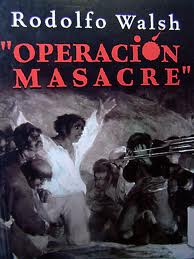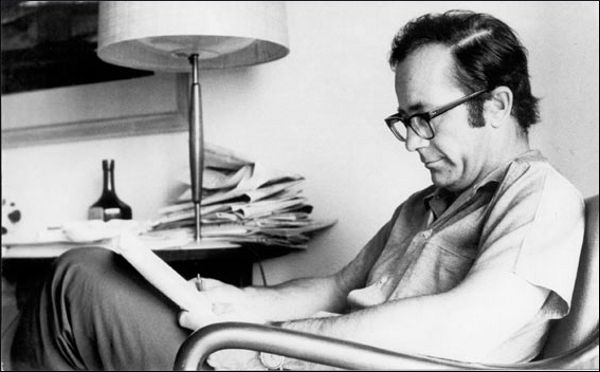
- Operation Massacre
- Published by: De La Flor
- Level: Beginner
- First Published in: 1957
In this classic piece of journalism, writer Rodolfo Walsh investigates the illegal capture and execution of six civilians believed to be conspiring against the military dictatorship then in power. A hugely influential book, it is believed to be one of the first important works of investigative journalism presented in novelized form, predating Truman Capote's landmark In Cold Blood by nine years.

“There’s an executed man who lives.” That’s the first line in Operation Massacre, overheard one day by writer and journalist Rodolfo Walsh. It's the hint that made him want to investigate the matter further and discover the identity of the living dead man, along with that of six other supposedly dead men who Walsh later found alive, survivors of the illegal executions in José León Suárez.
"Operation Massacre has the distinction of being one of the first non-fiction books structured like a novel"
José León Suárez is a town next to the city of Buenos Aires, where in 1956 twelve men were shot by the military government then in power because they were believed to have been involved in an attempted rebellion. On the night of June 9th, the police entered a house in the city of Florida, where the men were gathered listening to a boxing match on the radio, and arrested them. They were taken under the excuse that martial law had been declared. But as Walsh’s investigation reveals, not only was martial law not in effect at the time of the arrest, but the men were all innocent.

The book was published in 1957, and although those responsible for the shooting were never tried, Walsh’s investigation questioned the terrorist politics of the military dictatorship of Pedro Aramburu (1955-1958). Operation Massacre has the distinction of being one of the first non-fiction books structured like a novel (it was written nine years before the format was popularized by Truman Capote’s In Cold Blood). It is full of facts, dates, and details, but it is also an emotional book in which the feelings of the survivors convey the fear experienced by the men who were shot. It also helps readers to understand the level of impunity enjoyed by the different military governments which dominated Argentina during a great portion of the last century.
"Today, Operation Massacre is a classic text and required reading for budding journalists. It’s likely the most famous non-fiction work ever published in Argentina."
Walsh was a well-known journalist who worked in newspapers and magazines and who would later write other crime investigation books, like ¿Quién mató a Rosendo? (Who Killed Rosendo?). His left-wing political ideas made him an antagonist of the various right-wing military governments that appeared in the 50s, 60s, and 70s, and publishing Operation Massacre was not an easy task. 20 years later, after writing his famous “Open Letter of a Writer to the Military Junta” in 1977, he was “disappeared,” a term used in Argentina to refer to the people killed by the military dictatorships whose bodies never turned up (especially during the so-called Dirty War of the 70s and early 80s). Today, Operation Massacre is a classic text and required reading for budding journalists. It’s likely the most famous non-fiction work ever published in Argentina.

